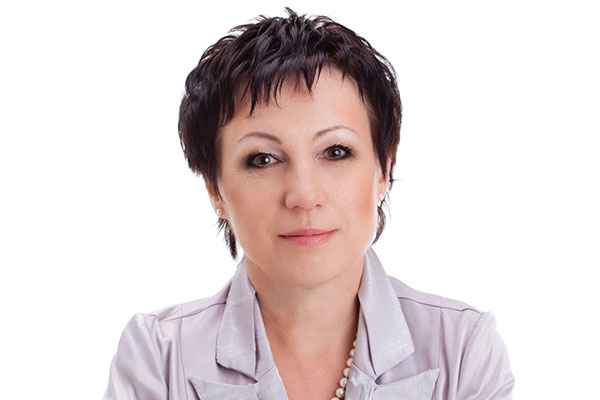Incredibly Useful Advice for Non-Hodgkin Lymphoma Survivors
Non-Hodgkin lymphoma (NHL) is a group of cancers affecting cells called lymphocytes in the lymphatic system. When you have NHL, these cells begin to grow uncontrollably. There are two basic types of lymphocytes – T-cells and B-cells – and the name of your cancer may include the type of cell. The most common types of non-Hodgkin lymphoma are follicular lymphoma and diffuse large B-cell lymphoma. Here are some important tips to keep in mind when coping with an NHL diagnosis.
See a doctor who specializes in treating blood cancers.
To find a blood cancer specialist, ask your primary care doctor to recommend one, or contact a nearby cancer center. For information about hospitals, cancer treatment facilities, and surgical centers, take a look at these resources:
• The American Society of Clinical Oncology’s website, Cancer.Net, offers a “Find an Oncologist” database that allows you to search by many different criteria, including area of specialty, board certification, and location.
• The National Cancer Institute (cancer.gov or 800-4-CANCER) publishes a list of NCI-Designated Cancer Centers.
• The Leukemia & Lymphoma Society (lls.org or 800-955-4572) offers a helpful fact sheet titled “Choosing a Blood Cancer Specialist or Treatment Center.”
Find out what type of NHL you have.
This will determine what treatment may be most effective for your type of NHL. Ask if your cancer is low grade (also called indolent), which grows slowly, or intermediate/high grade (or aggressive), which grows faster.
Understand the treatment plan your doctor is recommending.
Your treatment depends on what type of NHL you have and how quickly it is growing. The most common treatments are chemotherapy, radiation therapy, monoclonal antibody therapy, and stem cell transplantation. Sometimes the treatments are combined. For example, most lymphomas are treated with a combination of the antibody rituximab and conventional chemotherapy. Low-grade NHL may be managed by watchful waiting, which is regular monitoring with tests and office visits.
The most common types of non-Hodgkin lymphoma are follicular lymphoma and diffuse large B-cell lymphoma.
Ask your doctor if you might be a candidate for a clinical trial.
People who take part in clinical trials receive state-of-the-art care and often gain access to and benefit from new medicines which are being developed every year. To learn more about clinical trials and find trials that are recruiting, visit cancer.gov/clinicaltrials.
Get the most out of your healthcare team.
Don’t hesitate to ask questions or bring up concerns about your care. Prepare a list of questions ahead of time so you don’t forget them. Write down the answers and ask for your healthcare team to provide more detail if you do not fully understand them. It can help to bring someone else with you to appointments to hear what is discussed and ask questions you might not have considered.
Seek out an oncology social worker.
Oncology social workers specialize in helping people cope with the emotional and practical challenges of cancer. They are familiar with a wide range of resources and can provide you with referrals based on your needs.
Reach out to family and friends.
Having a strong support system of family and friends will reduce your stress and help you cope. You may be reluctant to share your diagnosis with family and friends, but it can be useful for both you and your loved ones. Friends will often ask you if they can do anything to help. Let them show their concern in practical ways, such as preparing meals, doing household chores, driving you to appointments, or just being there to talk.
Organize your information.
Keep all your medical information in one place, such as a three-ring binder or spiral notebook. You’ll be able to find what you need quickly, and it’s easy to carry with you to appointments.
Find financial help.
A cancer diagnosis often puts a financial strain on a family. However, there are a number of programs and services that can offer benefits to you. For example, CancerCare provides limited financial aid for treatment-related costs and co-pay assistance, as well as offers information on co-pay relief programs and other sources of financial help at CancerCare.org.
Connect with others.
Consider joining a support group that links you with others in a similar situation. Group members can offer reassurance and provide insight and suggestions.
Be good to yourself.
Techniques such as deep breathing, yoga, tai chi, and meditation can calm your mind, reduce stress, and help maintain inner peace. Many cancer treatment centers have programs to teach people the basics of relaxation or meditation. Try to take time for yourself every day as well: read a book, take a relaxing walk, watch a movie, listen to your favorite music, or spend time with friends.
CancerCare offers free face-to-face, telephone, and online support groups led by professional oncology social workers. CancerCare’s social workers can also work with you to find ways to cope with a cancer diagnosis. To learn more, call (800) 813-4673 or visit CancerCare.org.
Reprinted with permission from CancerCare.org.
This article was published in Coping® with Cancer magazine, September/October 2018.


